Criteria for Evaluation
Undergraduate awards are evaluated using the following criteria; more specific award descriptions and requirements are below.
Academic Excellence: The student consistently demonstrates a high level of intellectual curiosity and excels in Chemistry and Biochemistry coursework, maintaining a strong GPA.
Undergraduate Teaching Assistantship: As a TA, the student effectively communicates course material to peers, offering clear explanations and fostering an inclusive learning environment. The opinion of the faculty member who oversees the student will be considered.
Research: The student exhibits strong critical thinking and problem-solving skills in research, taking on new projects and consistently communicating with their principal investigator. Presentations, publications, and conferences will be considered for all scholarships except for the LOVE awards.
Leadership: The student shows an ability to motivate peers on campus through extracurricular involvement. This can include holding officer positions, founding clubs, or spearheading campus initiatives.
Living Our Values Everyday (LOVE) Awards. This award honors a student who embodies the values of Georgia Tech, including our motto of Progress and Service. For example, awardees may:
- Show resilience, positive teamwork skills, integrity, and ethical character
- Exhibit a positive attitude and display respect for others
- Serve local communities through volunteering or leadership
Because this is not an academic award, GPA will not be a consideration. Nominees will be evaluated for excellence in teamwork skills, integrity and ethics, service to the Institute, and resilience.
Arduengo Awards. Scholarships given to undergraduate students in the School of Chemistry and Biochemistry. Students must be enrolled for at least one year and who demonstrate outstanding potential for life-long contributions to the science of chemistry. Preference may be given to students with financial need whose interests focus on the study and practice of Chemistry and who are involved in undergraduate research activities. If reports of the results of such research activities are presented at local, regional, national, or international congresses or meetings, acknowledgment of this scholarship fund and additional funding sources for research and travel shall be made as may be appropriate.
Nominees will be evaluated for excellence in undergraduate research, academic coursework, and leadership in student organizations or School committees. Publications and conference presentations will be considered in the evaluation of research excellence.
Chance Scholarships. Scholarships shall be awarded to undergraduate upperclassmen majoring in Chemistry, with recipients selected by the Office of Student Financial Planning and Services upon the recommendation of the School of Chemistry and Biochemistry. It is the preference of the donors that the School of Chemistry and Biochemistry recommend a chemistry major intending to pursue a career in chemistry.
Nominees will be evaluated for excellence in academic coursework and potential for success in a future career in chemistry, biochemistry, or a related field. Publications and conference presentations will be considered in the evaluation of research excellence.
Eberhardt Awards. The income of the fund provides support for the William H. Eberhardt Scholarships to exceptional undergraduate chemistry students in the College of Sciences.
Nominees will be evaluated for excellence in academic coursework, teaching (undergraduate teaching assistantships), undergraduate research, and leadership on campus. In the evaluation of teaching, preference will be given to those who have taught in the School of Chemistry and Biochemistry. Publications and conference presentations will be considered in the evaluation of research excellence.
Fink Awards. The income of the fund is used to provide the Dr. Richard W. Fink Memorial Scholarships to chemistry students and to provide the Dr. Richard W. Fink Memorial Lectures in Chemistry and Biochemistry.
Nominees will be evaluated for excellence in academic coursework, teaching (undergraduate teaching assistantships), undergraduate research, and leadership on campus. In the evaluation of teaching, preference will be given to those who have taught in the School of Chemistry and Biochemistry. Publications and conference presentations will be considered in the evaluation of research excellence.
Sherry Awards. The income of the Fund is used to provide the Peter B. Sherry Scholarship to a student in the School of Chemistry and Biochemistry and to provide a lectureship and memorial scroll in Peter B. Sherry's honor.
Nominees will be evaluated for excellence in academic coursework, teaching (undergraduate teaching assistantships), undergraduate research, and leadership on campus. In the evaluation of teaching, preference will be given to those who have taught in the School of Chemistry and Biochemistry. Publications and conference presentations will be considered in the evaluation of research excellence.
Spicer Awards. The income of the Fund is used to provide the William Monroe Spicer Scholarship to a rising senior in the School of Chemistry and Biochemistry.
Nominees will be evaluated for excellence in academic coursework, teaching (undergraduate teaching assistantships), undergraduate research, and leadership on campus. In the evaluation of teaching, preference will be given to those who have taught in the School of Chemistry and Biochemistry. Publications and conference presentations will be considered in the evaluation of research excellence.
Who are the School’s undergraduate awards named for?
Georgia Tech has offered degrees in chemistry since 1906. Since then, many students have graduate from our programs, many faculty members have taught and mentored students, and many careers and lives have been enhanced. In some cases, alumni, friends of our school, faculty and the families of faculty members have given resources to the Georgia Tech Foundation to help strengthen and grow our community. The undergraduate Chance, Eberhardt, Fink, Sherry and Spicer awards are named in honor of former faculty members. The Arduengo award was created with funds from a former student and current faculty member, Prof. Arduengo.
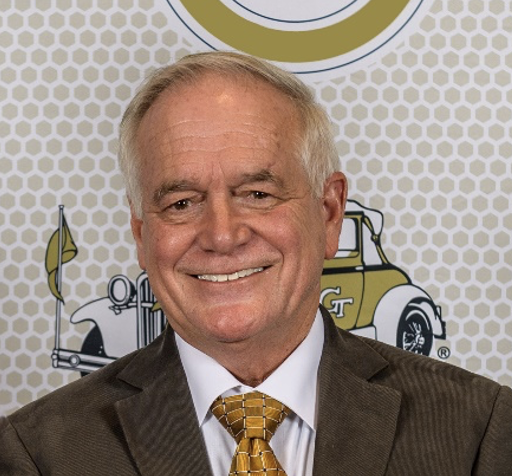 Anthony "Bo" Arduengo III was born in Tampa, Florida, in 1952, and he grew up in Atlanta, Georgia. His academic journey took him through Georgia Tech, where he gained BSc and PhD degrees in Chemistry, the latter under the guidance of Prof. Edward M. Burgess. His career then moved between academia and industry, starting with DuPont, then moving to the University of Illinois, and back to DuPont where he made his best-known scientific discovery. After once again leaving Dupont, he moved to the University of Alabama and then onto Georgia Tech where he is currently a Professor of the Practice.
Anthony "Bo" Arduengo III was born in Tampa, Florida, in 1952, and he grew up in Atlanta, Georgia. His academic journey took him through Georgia Tech, where he gained BSc and PhD degrees in Chemistry, the latter under the guidance of Prof. Edward M. Burgess. His career then moved between academia and industry, starting with DuPont, then moving to the University of Illinois, and back to DuPont where he made his best-known scientific discovery. After once again leaving Dupont, he moved to the University of Alabama and then onto Georgia Tech where he is currently a Professor of the Practice.
He is known for isolating the first stable N-heterocyclic carbene (NHC) in 1991, which was revolutionary as carbenes were thought to be highly reactive and short-lived. This discovery opened up new avenues in many areas of chemistry. Not one to keep his science in the lab, Arduengo's work has found practical applications. He contributed to the development of low VOC automotive coatings and was involved in projects like the flexible polyimide film, Kapton-ZT, used in electronics. Through his involvement with the StanCE coalition, he is pushing for sustainable chemistry based on woody biomass or, as he would call it, "Xylochemistry". Beyond the lab, Arduengo has been committed to education, fostering interest in science among the young through lectures, and supporting research abroad through scholar exchange programs between the U.S. and Germany. He has ~150 publications and patents and his influence in chemistry is broad, touching on organic, inorganic, and material science.
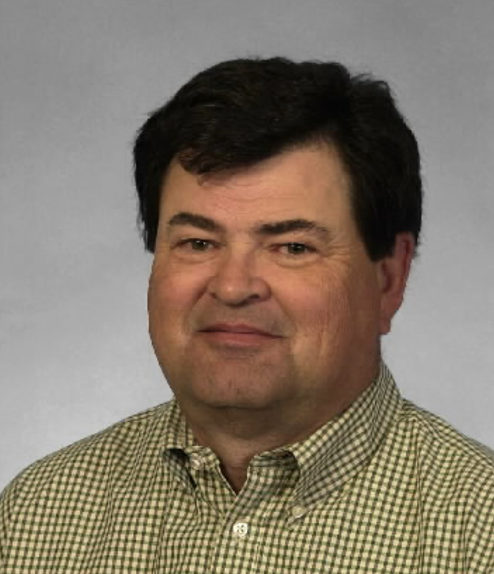 Ronald R. Chance graduated from Delta State University with A BS in Chemistry in 1970 and when on to complete a PhD in Physical Chemistry ay Dartmouth in 1974. After a career in industry working for Honeywell (1974 – 1986) and Exxon Mobil corporation (1986 – 2006), he took a joint position between the School of Chemical and Biomolecular Engineering and the School of Chemistry and Biochemistry at the Georgia Institute of Technology, as a Professor of the Practice, in 2006. He joined Algenol Biofuels (2009-2019) as Executive Vice President for Engineering, while continuing an affiliation with the Georgia Institute of Technology His research interests include CO2 capture and utilization. He has more than 150 peer reviewed publications and 30+ patents. He is an elected member of the American Physical Society and was the 2018 recipient of the Lawrence Evans Awards from AICHE.
Ronald R. Chance graduated from Delta State University with A BS in Chemistry in 1970 and when on to complete a PhD in Physical Chemistry ay Dartmouth in 1974. After a career in industry working for Honeywell (1974 – 1986) and Exxon Mobil corporation (1986 – 2006), he took a joint position between the School of Chemical and Biomolecular Engineering and the School of Chemistry and Biochemistry at the Georgia Institute of Technology, as a Professor of the Practice, in 2006. He joined Algenol Biofuels (2009-2019) as Executive Vice President for Engineering, while continuing an affiliation with the Georgia Institute of Technology His research interests include CO2 capture and utilization. He has more than 150 peer reviewed publications and 30+ patents. He is an elected member of the American Physical Society and was the 2018 recipient of the Lawrence Evans Awards from AICHE.
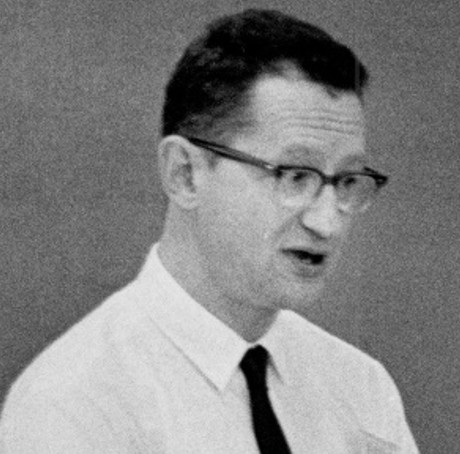 Dr. William H. Eberhard was born in Montclair, N.J., in 1920, and died in 1993. He received an A.B. degree from John Hopkins and a PhD In Chemistry and Mathematics from Cal Tech. He worked with Nobel Prize winner Dr. Linus Pauling during World War ll. He came to Georgia Tech in 1946 as an instructor of chemistry and retired in 1984 as Regents' Professor Emeritus. Eberhardt was a physical chemist with an interest in spectroscopy. He was awarded an Alfred P Sloan Foundation Research Fellowship in 1956. He was the associate dean of COSALS (Colleges of Sciences, Arts and Letters) from 1970 to 1977. He was well known for his freshman chemistry demonstrations at Georgia Tech and was the recipient of the Outstanding Faculty, Outstanding Teacher and ANAK Awards. He spent time as a visiting professor at the University of Minnesota, University of Illinois, University of Washington and Harvard University. While visiting the University of Minnesota he worked on boranes with Prof. W. Lipscomb, who went on to win the 1976 Chemistry Nobel Prize for work on the structure of boranes. Eberhardt was a member of the American Cancer Society, American Physical Society, Georgia Academy of Science, American Association for the Advancement of Science, Sigma Xi and Phi Beta Kappa. Among his many professional activities was his participation in the National Science Foundation, National Research Council, the Advisory Council of College Chemistry, Research Corporation, and the American Chemical Society. He was for many years a consultant and judge for the Atlanta Science Congress. Dr. Eberhardt was an educator, a teacher, a researcher and a scholar.
Dr. William H. Eberhard was born in Montclair, N.J., in 1920, and died in 1993. He received an A.B. degree from John Hopkins and a PhD In Chemistry and Mathematics from Cal Tech. He worked with Nobel Prize winner Dr. Linus Pauling during World War ll. He came to Georgia Tech in 1946 as an instructor of chemistry and retired in 1984 as Regents' Professor Emeritus. Eberhardt was a physical chemist with an interest in spectroscopy. He was awarded an Alfred P Sloan Foundation Research Fellowship in 1956. He was the associate dean of COSALS (Colleges of Sciences, Arts and Letters) from 1970 to 1977. He was well known for his freshman chemistry demonstrations at Georgia Tech and was the recipient of the Outstanding Faculty, Outstanding Teacher and ANAK Awards. He spent time as a visiting professor at the University of Minnesota, University of Illinois, University of Washington and Harvard University. While visiting the University of Minnesota he worked on boranes with Prof. W. Lipscomb, who went on to win the 1976 Chemistry Nobel Prize for work on the structure of boranes. Eberhardt was a member of the American Cancer Society, American Physical Society, Georgia Academy of Science, American Association for the Advancement of Science, Sigma Xi and Phi Beta Kappa. Among his many professional activities was his participation in the National Science Foundation, National Research Council, the Advisory Council of College Chemistry, Research Corporation, and the American Chemical Society. He was for many years a consultant and judge for the Atlanta Science Congress. Dr. Eberhardt was an educator, a teacher, a researcher and a scholar.
The above biography draws heavily on an obituary published in The Atlanta Journal, June, 1993.
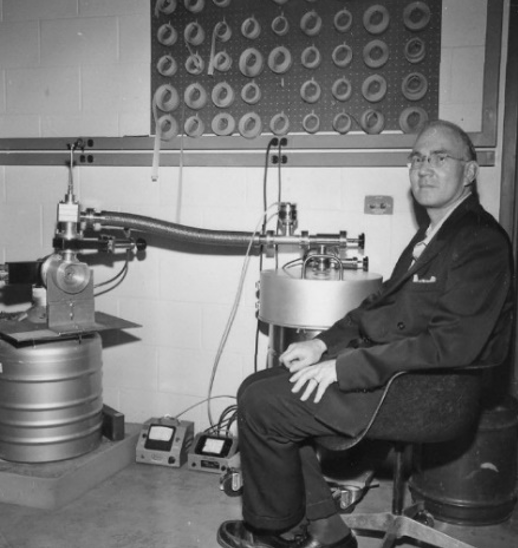 Prof. Richard W. Fink was born in 1928 in Detroit, Michigan. As a child, he demonstrated an interest in science, often alarming the neighbors when his “experiments” generated smoke and foul odors from his basement “laboratory”. He obtained a Bachelor’s degree in Chemistry from the University of Michigan in 1948, followed by a Master’s from the University of California, Berkeley in 1949, under the direction of Glenn T. Seaborg. He obtained his Ph.D. in Nuclear Chemistry from the University of Rochester in 1953. He spent his early years in academia at the University of Arkansas and in 1963 was the recipient of a Fulbright Faculty Fellowship. He spent the year pursuing research in Germany. During this period, he was approached by William M. Spicer with an offer to come to Georgia Tech, joining the faculty in the School of Chemistry in 1965. While at Georgia Tech, he had the distinction of having twenty-four years of continuous research support from the Department of Energy and its predecessors the Atomic Energy Commission and ERDA. He was one of the founding members of the University Isotope Separator project at the Oak Ridge National Laboratory in the mid 1970s. Prof. Fink has over 150 publications in refereed scientific journals and one particular paper on “X-ray Fluorescence Yields” has been cited over 1400 times in the scientific literature. During his time at Tech, he was mentor to seventeen post-doctoral fellows and research scientists and was thesis advisor to twenty Ph.D. and M.S. students, a significant number of whom went on to academic careers. He was an accomplished horseman and a lover of chocolate.
Prof. Richard W. Fink was born in 1928 in Detroit, Michigan. As a child, he demonstrated an interest in science, often alarming the neighbors when his “experiments” generated smoke and foul odors from his basement “laboratory”. He obtained a Bachelor’s degree in Chemistry from the University of Michigan in 1948, followed by a Master’s from the University of California, Berkeley in 1949, under the direction of Glenn T. Seaborg. He obtained his Ph.D. in Nuclear Chemistry from the University of Rochester in 1953. He spent his early years in academia at the University of Arkansas and in 1963 was the recipient of a Fulbright Faculty Fellowship. He spent the year pursuing research in Germany. During this period, he was approached by William M. Spicer with an offer to come to Georgia Tech, joining the faculty in the School of Chemistry in 1965. While at Georgia Tech, he had the distinction of having twenty-four years of continuous research support from the Department of Energy and its predecessors the Atomic Energy Commission and ERDA. He was one of the founding members of the University Isotope Separator project at the Oak Ridge National Laboratory in the mid 1970s. Prof. Fink has over 150 publications in refereed scientific journals and one particular paper on “X-ray Fluorescence Yields” has been cited over 1400 times in the scientific literature. During his time at Tech, he was mentor to seventeen post-doctoral fellows and research scientists and was thesis advisor to twenty Ph.D. and M.S. students, a significant number of whom went on to academic careers. He was an accomplished horseman and a lover of chocolate.
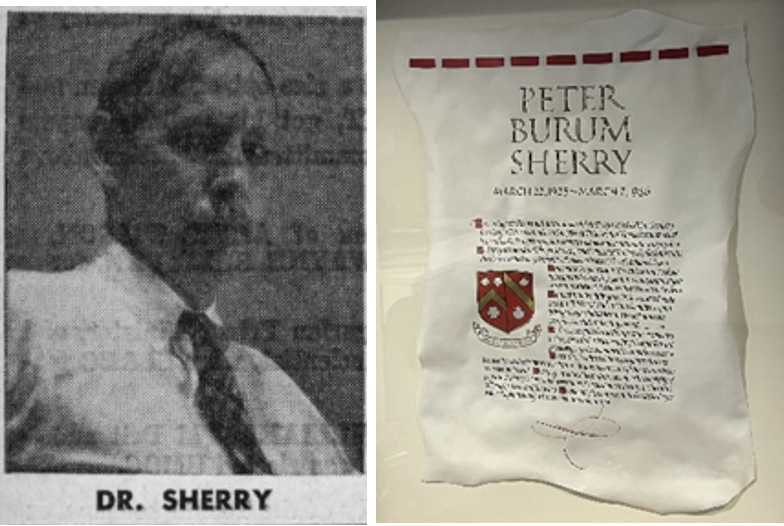
Born in Augusta, Georgia, March 22, 1925, and raised in Savannah, Peter Burum Sherry earned his BS in Chemistry from Georgia Tech in 1949, and his MS in 1951. His MS thesis work, “A Spectrographic Study of Copper-Tin Alloys”, was supervised by Prof. Monroe Spicer. At the University of Virginia, he earned his PhD in 1955, while minoring in mathematics and physics. His PhD thesis, "Surface Studies with the Field-emission Microscope", was supervised by Prof. Allan T. Gwathmey. Dr. Sherry was awarded a Fulbright Scholarship to the Mathematical Institute of Oxford University. There he received the Ramsey Memorial Fellowship and became a fellow of Wadham College. While in Oxford he worked with C. A. Coulson, an eminent applied mathematician and theoretical chemist. He returned to Georgia Tech in 1957 as an Assistant Professor. In 1961 he received the Georgia Tech Dean Pershing Award in recognition of his activities with the debate team, DramaTech and The World Student Fund. In 1964, he was promoted to associate professor and, with the aid of NSF funding, he spent that year as a visiting scholar at the Uppsala Institute in Sweden, where he worked with Dr. Per-Olov Löwdin, a noted scientist, who has been described as the father of quantum chemistry. For more than 25 years, Dr. Sherry served on the Georgia Tech World Student Fund Committee, helping to bring foreign students to Tech and to select numerous Georgia Tech students to study abroad. Dr. Sherry recognized the importance of computers in the research and instructional life of Georgia Tech and persuasively urged a commitment to computer services. As a teacher, he attracted the very brightest students because he was deeply interested in them. He gave his time unselfishly as an advisor, counselor and friend. Dr. Sherry introduced his students not only to the complexity of physical chemistry, but also the appreciation of classical music, theater, art, literature, calligraphy, foods, and fine wines. His pursuit of learning combined classical rigor with a delight in beauty, wit, proportion and humanity. He was elected to ANAK, the Georgia Tech leadership society. Dr. Sherry belonged to the society of the Cincinnati, whose members were descendants of Revolutionary War Officers. He traced his lineage to Gen. Daniel Morgan. He died March 7th, 1986, age 60.
The above biosketch draws heavily on the piece of calligraphy shown in the photograph, which is currently on display in the main office of Georgia Tech’s School of Chemistry and Biochemistry. It also draws on an obituary from the Atlanta Journal and several articles from the Technique, which is Georgia Tech’s student newspaper.
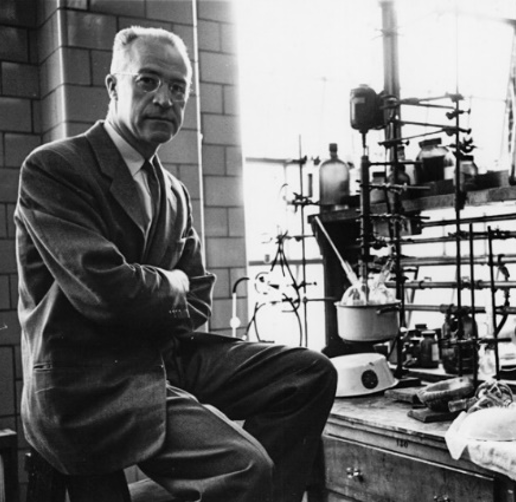 Dr. William Monroe Spicer was born in Hanover, Virginia, on December 22, 1908. He obtained his B.S. degree from Randolph–Macon College in 1932, and his Ph.D. degree from the University of Virginia in 1936. He came to Georgia Tech in 1936 as an Instructor, and rose through the ranks to Professor in 1948. From 1955 until 1973 he served as Director of the School of Chemistry. Upon his retirement in 1976, he was named Professor Emeritus of Chemistry and Director Emeritus of the School of Chemistry. Dr. Spicer was active in research at a time when such efforts were not the norm for faculty members at Georgia Tech. He published fifteen papers from 1942 to 1958, and he received a Sigma Xi Research Award in 1952. Throughout his career, Dr. Spicer was an active member of organizations promoting research and scholarship, such as Sigma Xi, Phi Kappa Phi, and the Georgia Academy of Science. He was also an active member of the American Institute of Chemists and the American Chemical Society. In the latter organization he served as a National Councilor, representing the Georgia Section, for many years. Monroe Spicer was an outstanding, dedicated teacher who received both campus and national awards for outstanding teaching. He was coauthor (with W. S. Taylor and J. D. Clarey) of a general chemistry problem book that was used at numerous schools throughout the country. He took a strong personal interest in students, and he regularly taught a freshman chemistry section throughout the time he was Director of the School of Chemistry. He even continued to teach recitation and review sections in freshman chemistry after his retirement. As School Director for 18 years, Monroe Spicer was largely responsible for developing a strong graduate program in Chemistry. Under his leadership the Boggs Chemistry Building was planned and constructed. The memorial lecture and scholarship award are named to honor his memory as a scientist, teacher, and colleague in the School of Chemistry at Georgia Tech.
Dr. William Monroe Spicer was born in Hanover, Virginia, on December 22, 1908. He obtained his B.S. degree from Randolph–Macon College in 1932, and his Ph.D. degree from the University of Virginia in 1936. He came to Georgia Tech in 1936 as an Instructor, and rose through the ranks to Professor in 1948. From 1955 until 1973 he served as Director of the School of Chemistry. Upon his retirement in 1976, he was named Professor Emeritus of Chemistry and Director Emeritus of the School of Chemistry. Dr. Spicer was active in research at a time when such efforts were not the norm for faculty members at Georgia Tech. He published fifteen papers from 1942 to 1958, and he received a Sigma Xi Research Award in 1952. Throughout his career, Dr. Spicer was an active member of organizations promoting research and scholarship, such as Sigma Xi, Phi Kappa Phi, and the Georgia Academy of Science. He was also an active member of the American Institute of Chemists and the American Chemical Society. In the latter organization he served as a National Councilor, representing the Georgia Section, for many years. Monroe Spicer was an outstanding, dedicated teacher who received both campus and national awards for outstanding teaching. He was coauthor (with W. S. Taylor and J. D. Clarey) of a general chemistry problem book that was used at numerous schools throughout the country. He took a strong personal interest in students, and he regularly taught a freshman chemistry section throughout the time he was Director of the School of Chemistry. He even continued to teach recitation and review sections in freshman chemistry after his retirement. As School Director for 18 years, Monroe Spicer was largely responsible for developing a strong graduate program in Chemistry. Under his leadership the Boggs Chemistry Building was planned and constructed. The memorial lecture and scholarship award are named to honor his memory as a scientist, teacher, and colleague in the School of Chemistry at Georgia Tech.